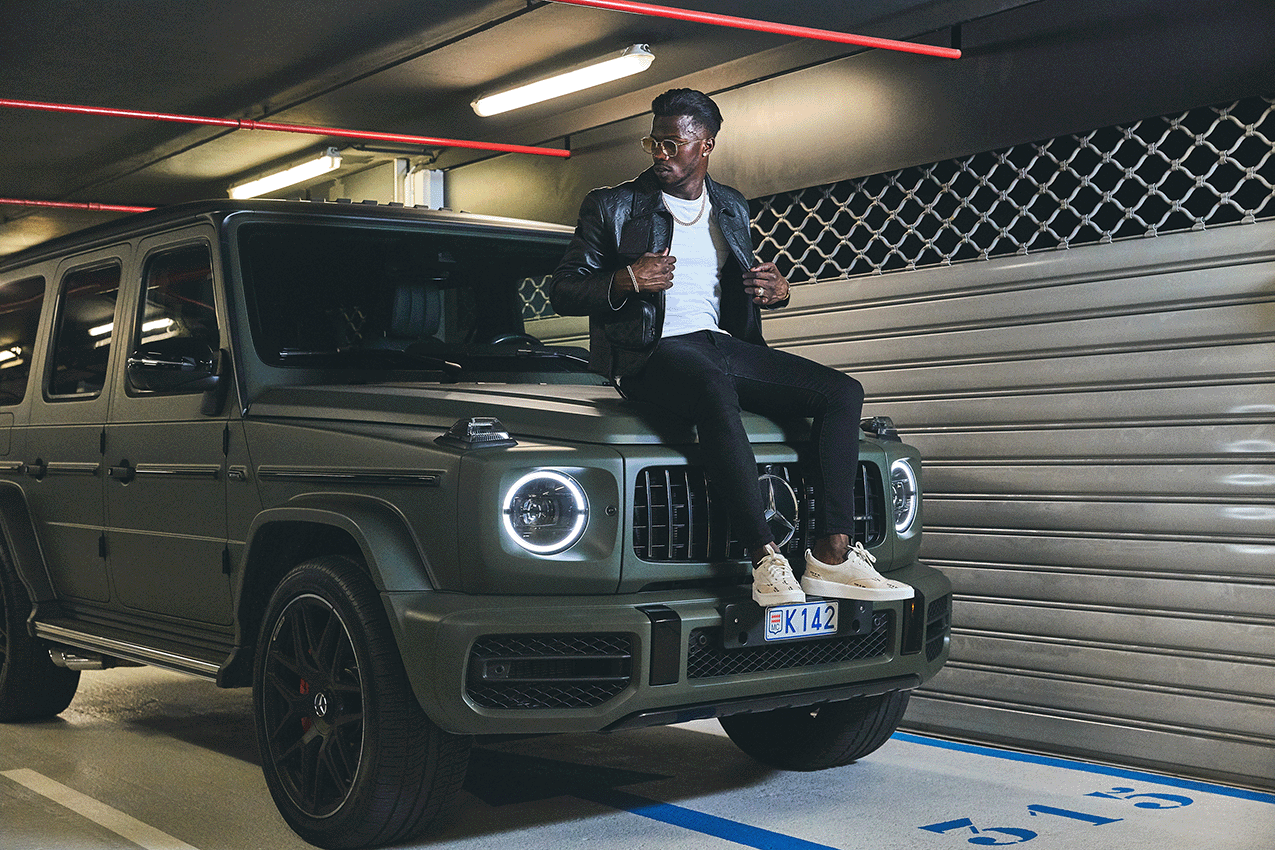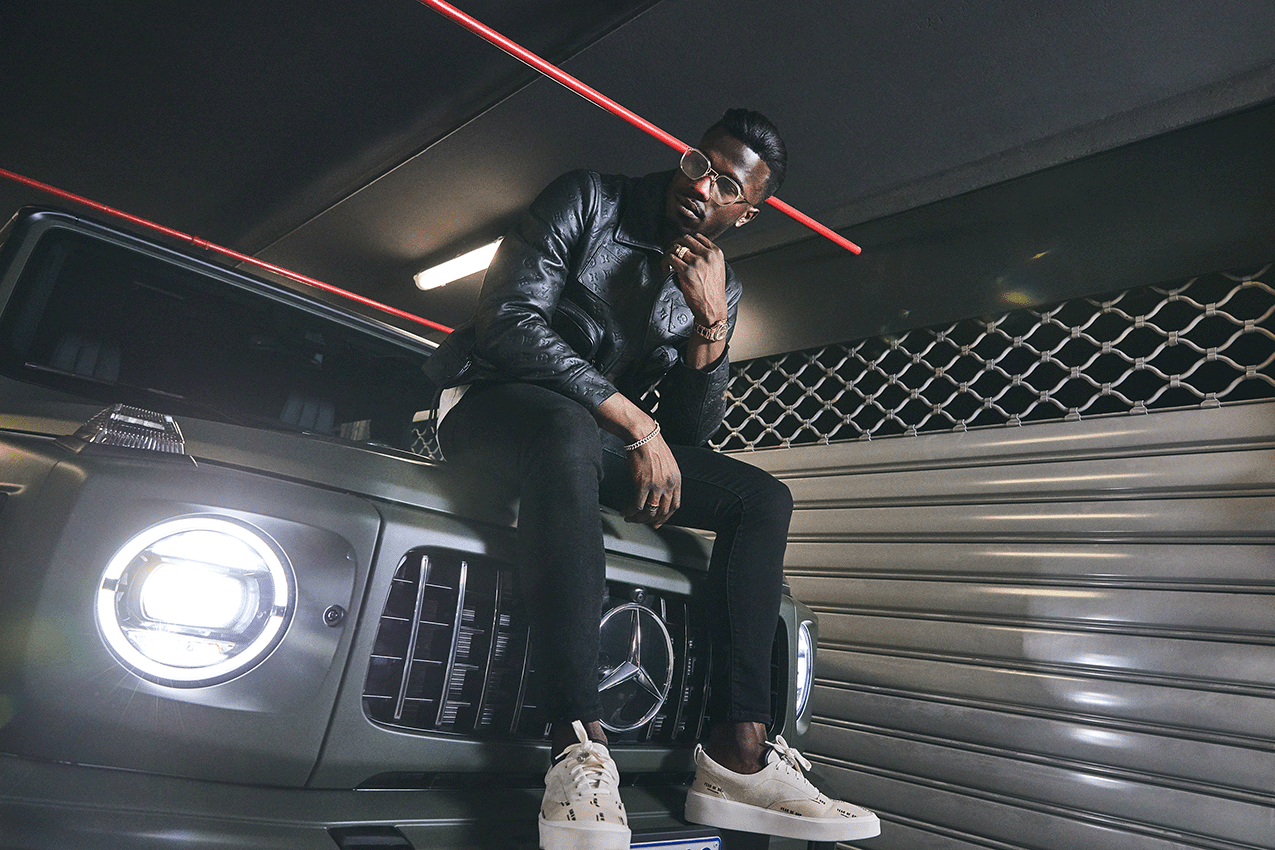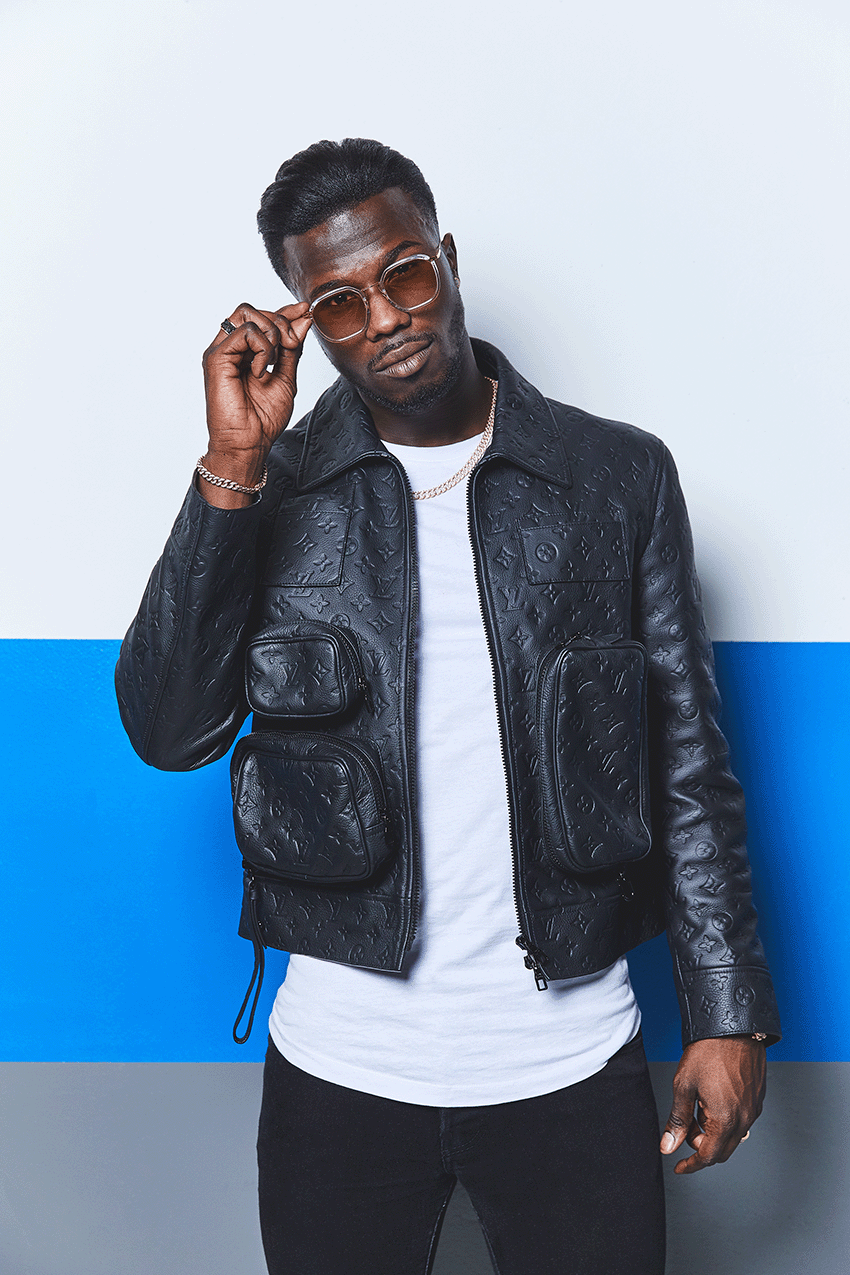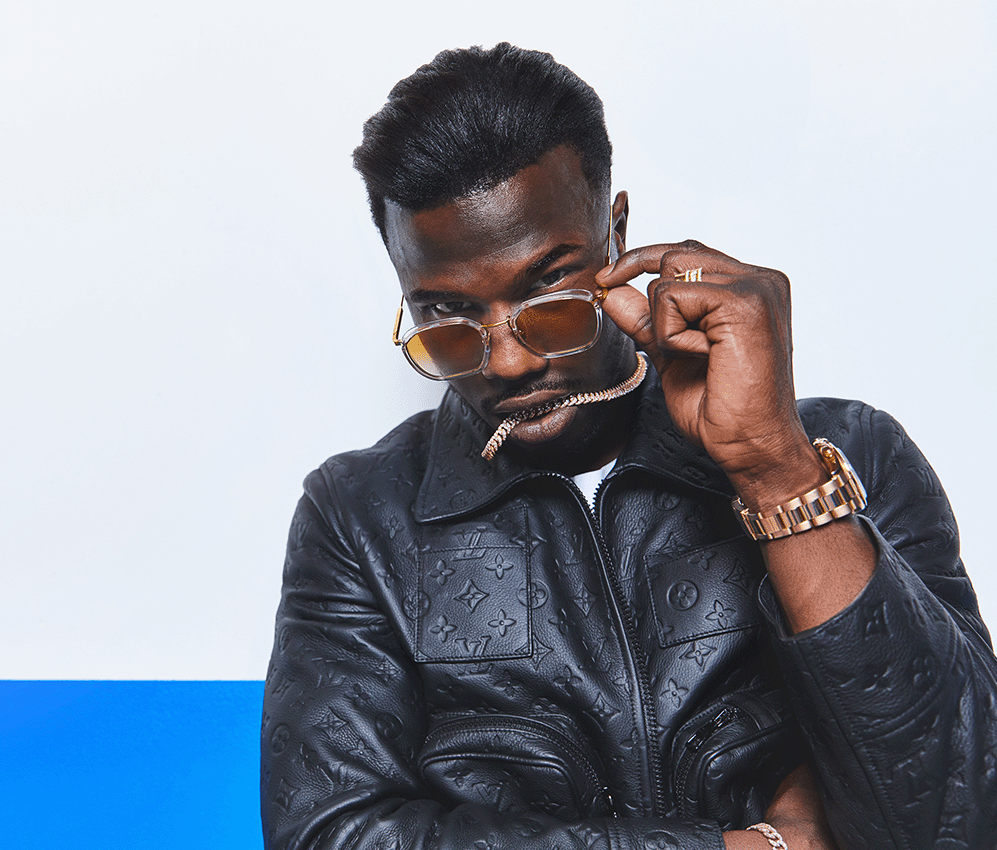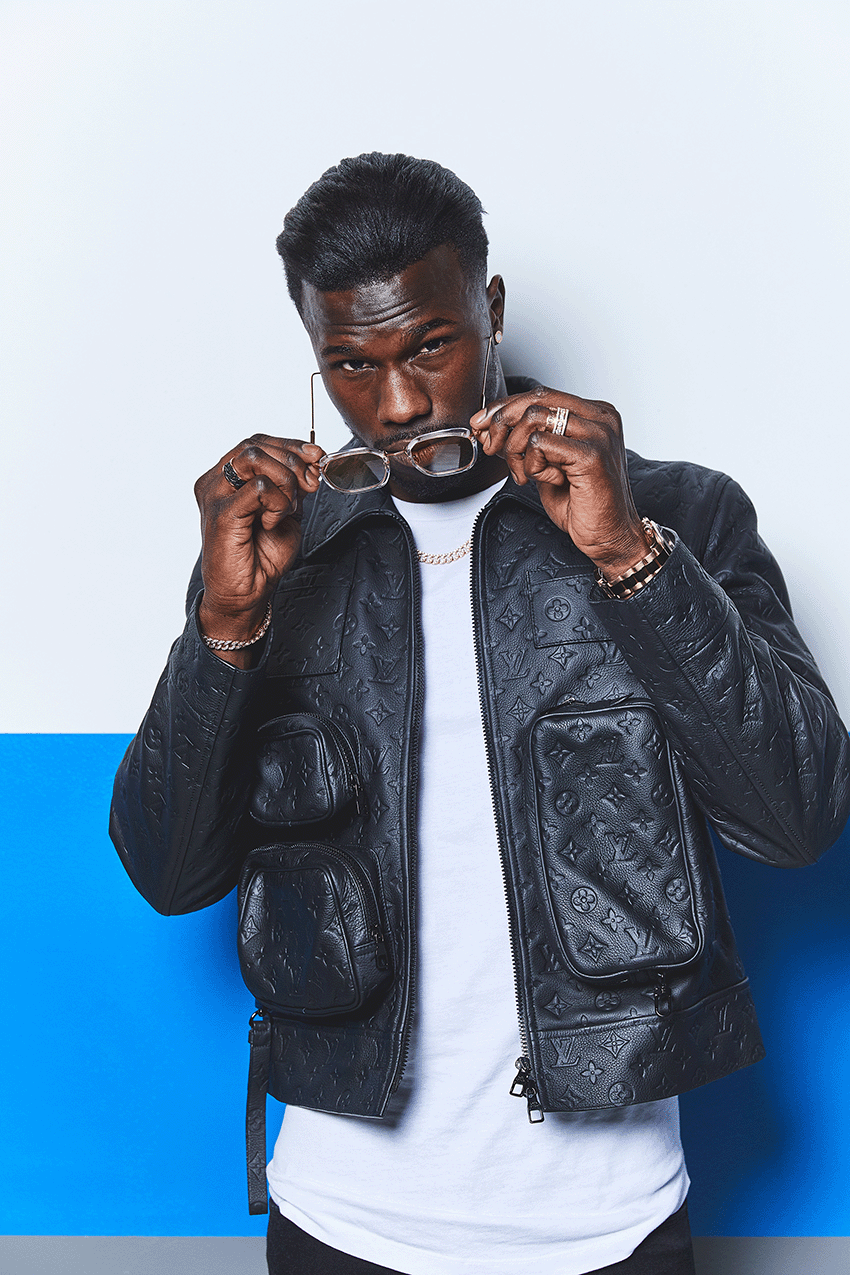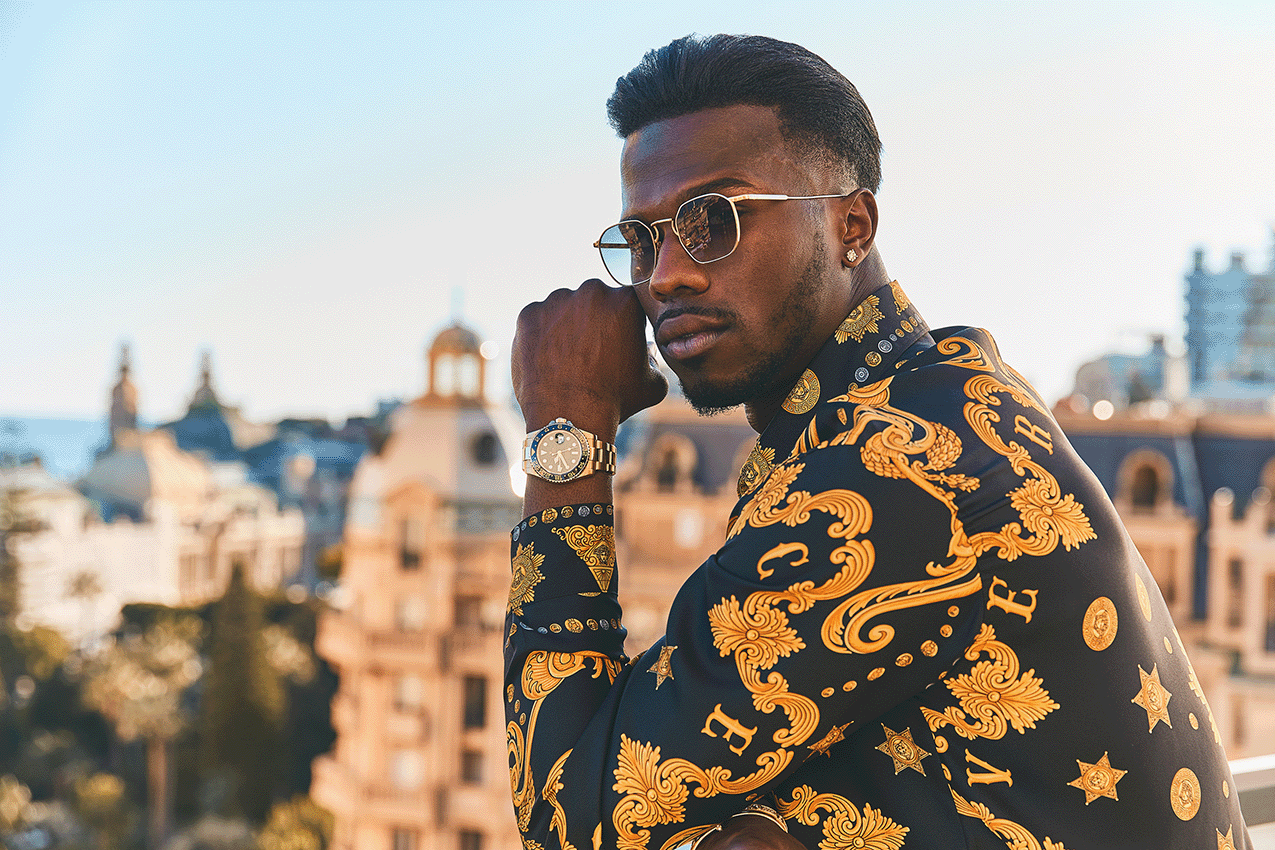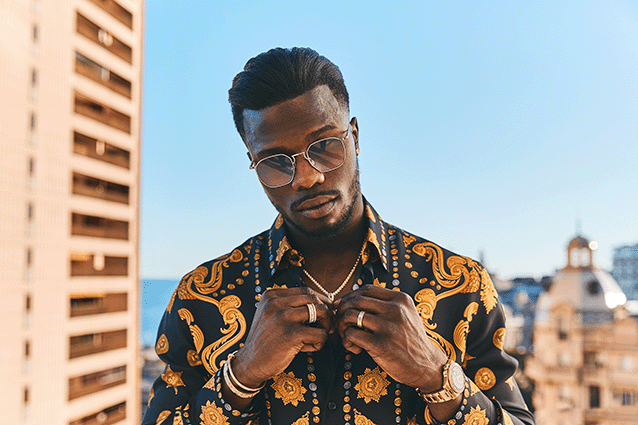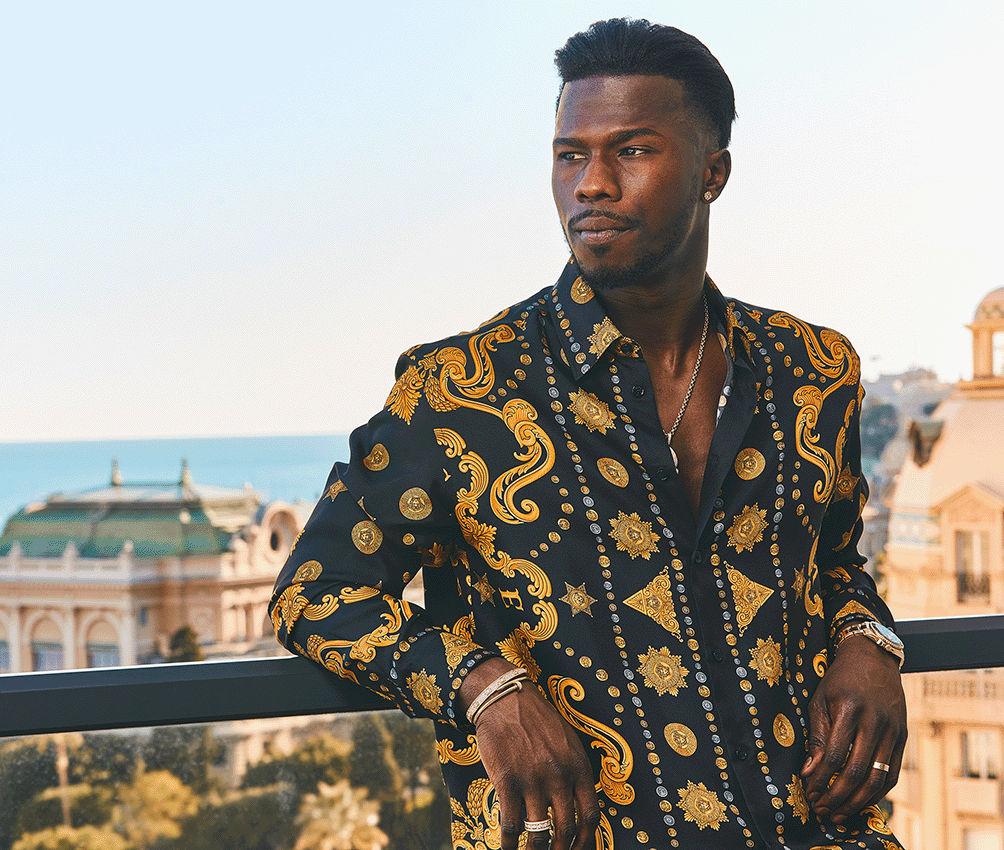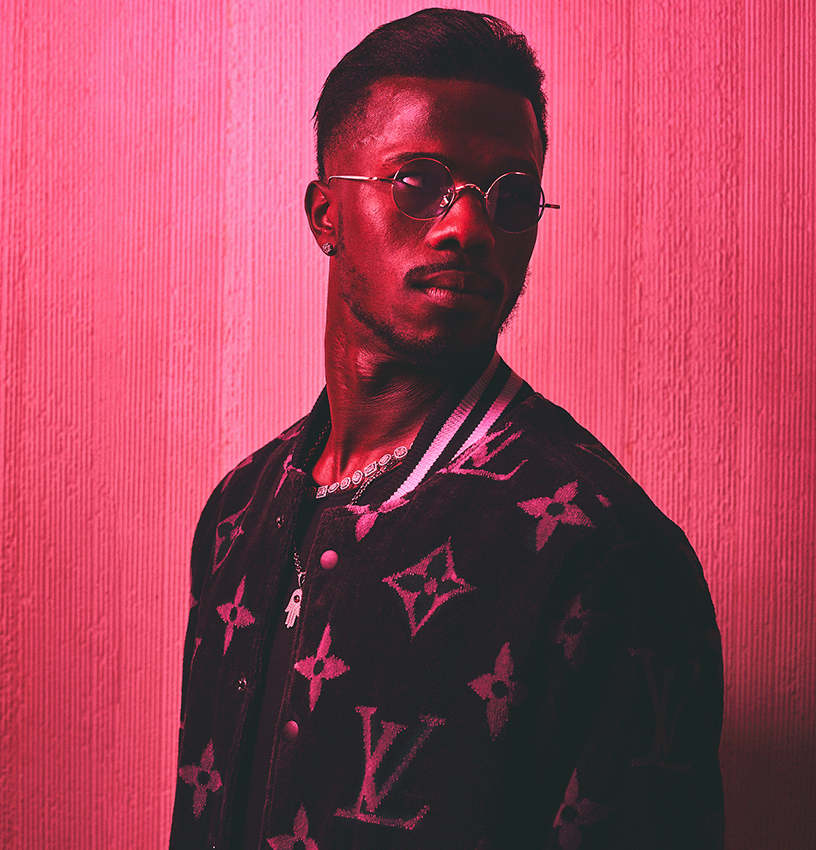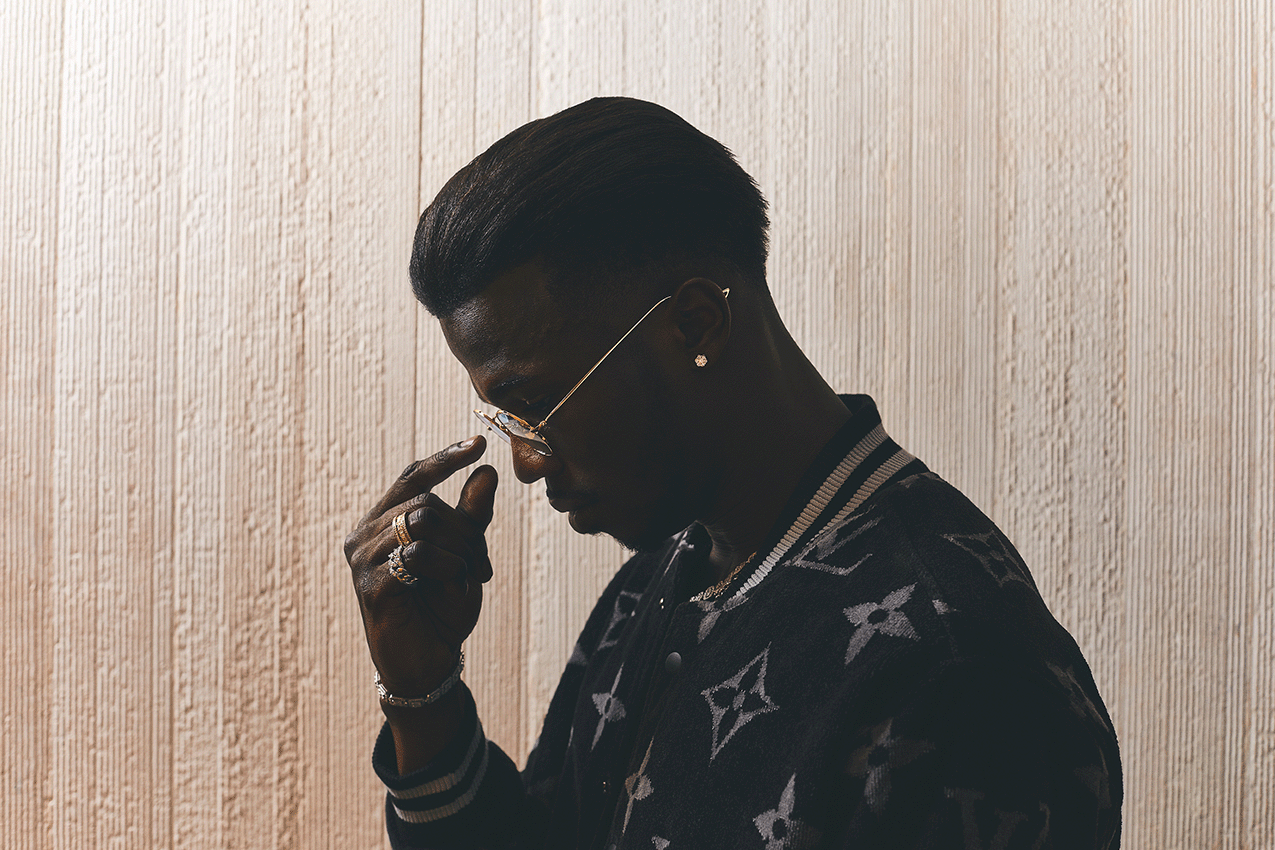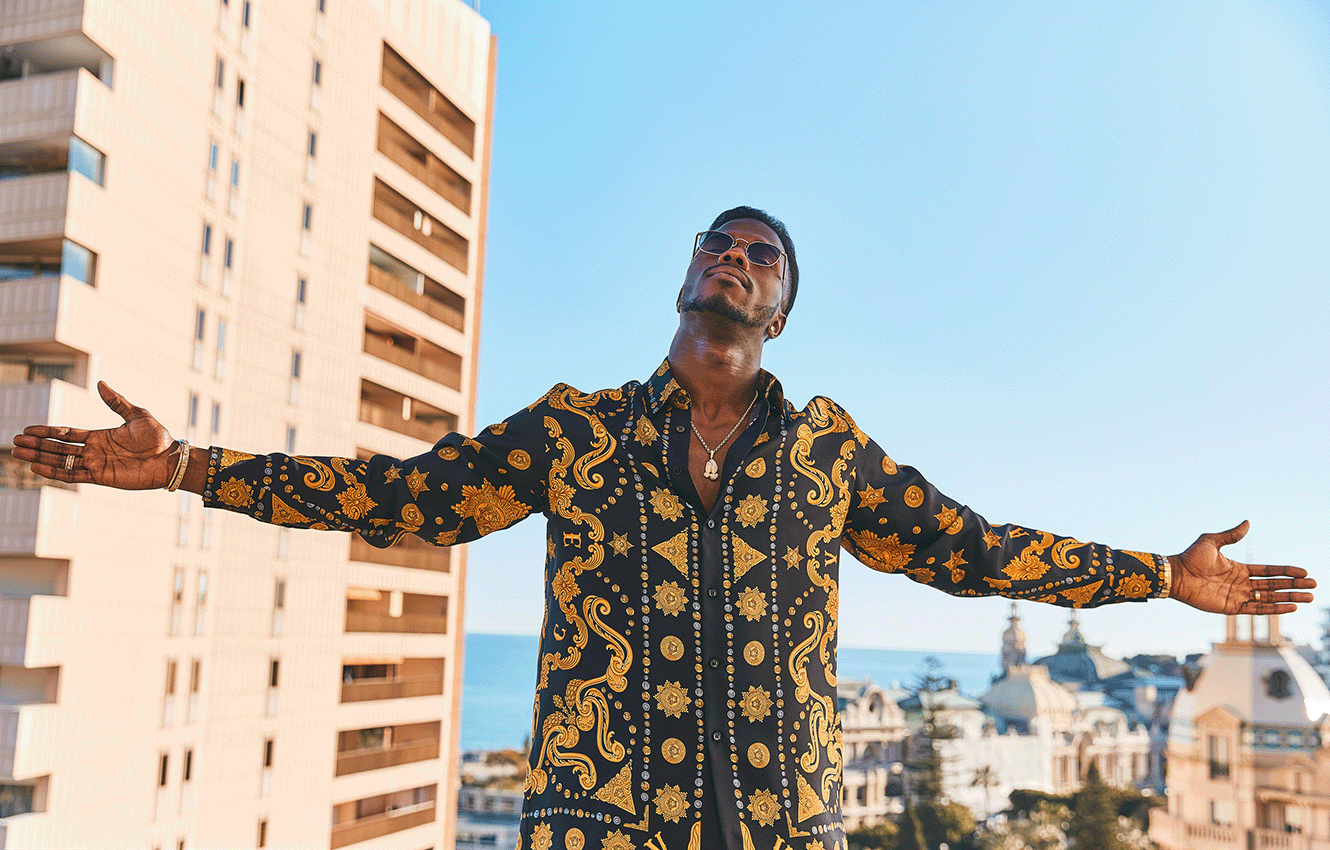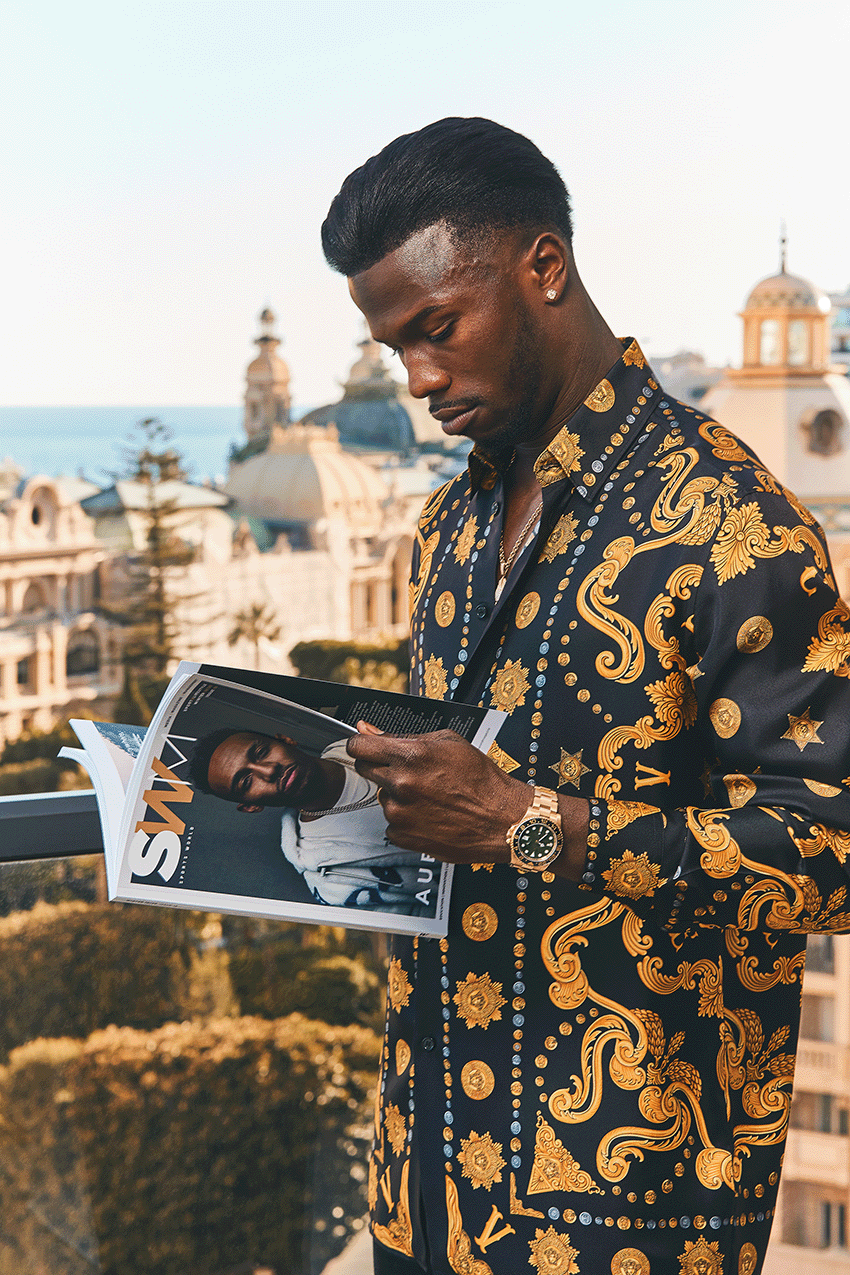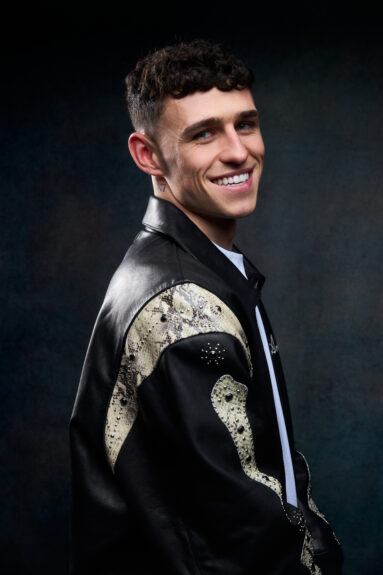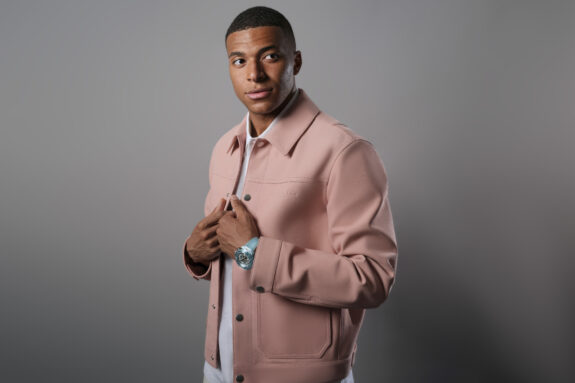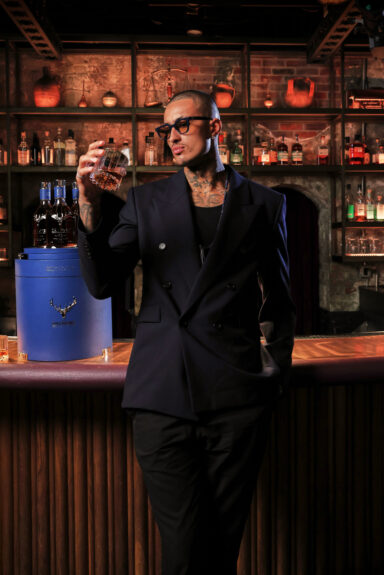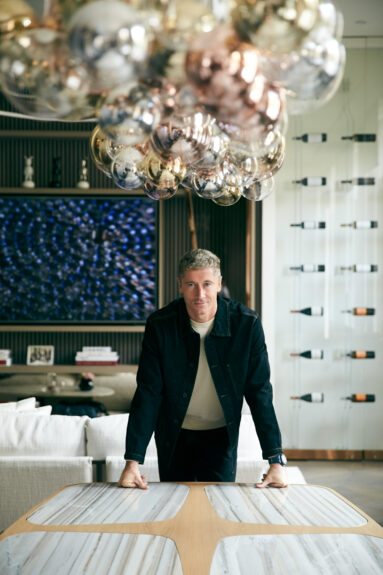Keita Balde
World Exclusive
To the modern-day footballer, fashion is a fundamental part of life and for Monaco’s star man Keita Balde, it’s no different. In recent years, the former Barcelona and Lazio forward has gained an unrivalled reputation for putting together an outfit, perhaps owing to the incredible experiences he’s had as a footballer. In this latest issue of SW we discuss;
..the journey from La Masia to Monaco.
You were born in Spain to Senegalese parents and chose to play for the Senegal national team. How did they feel when you told them you wanted to play for their home nation?
With a lot of enthusiasm, they were very proud and happy. I did it for my parents and my family: I am proud to represent their home country.
Was it your father who introduced you to football?
No, to be honest. It all happened naturally, I went to the ground to play football with my friend, and the coach asked me to join. It started in a very simple way.
Do you have any early memories of playing together in the Spanish village where you grew up?
“It was football, football, football every day.”
On the pitch, on the beach, all day long. Many good memories with my friends. It all started with love and passion for the game.
Your younger brother is also a footballer and currently plays in Italy. Is football ability a family trait?
Football is a family passion. So are sports in general as well. With it becoming a job, it’s even more serious now. But the passion is still the same.
When did Barcelona’s scouts first spot you? What was it like when they approached your family and asked you to join the club?
I was 8-9 years old. After a game, the scout told my dad Barça wanted me, so speaking with him, he told me where and when to go for a meeting with the club. A huge emotion for the family.
What do you recall about your youth career with Barcelona’s famous academy? Do you look back on it with fond memories?
Every detail, emotional experience for a kid: an amazing club taking care of the youth sector, great focus on details, away tournaments and games; it’s been such an amazing journey to be part of Barcelona.
There is a lot of expectation on players who are products of Barcelona’s academy. Did you ever feel aware of that pressure?
Yes, you can feel it clearly, most of all, when you play games and travel for tournaments. Wearing Barça colours is a big responsibility and honour, and there are great expectations.
We understand that Samuel Eto’o was a player you looked up to as a youngster.
Such a great player and very inspiring to me. We also had a lesson with him when I was nine years old, every first-team player picked up six or seven youngsters to teach them, and we were learning from our big idols, which was funny and useful at the same time.
What was it like to then go on to play for Inter Milan, as he did? Did you ever imagine that would happen? What was it that you admired about him?
He is a true leader and a great player; I loved to watch him, on and off the pitch. A real example for youngsters like we were. In the end, playing in both Inter and Barça like him has been absolutely incredible. I feel lucky and proud.
Looking back at your time at Lazio, what did you learn there? How much of a role do you think the club played in your development?
I was 16 years old. My first experience really far from home and abroad. I spent seven years at the club, so it was important for me to become a grown man. I have very good memories of difficult moments as well because it helps you grow as a person and make a human and sports experience.
You went on to make well over 100 appearances. What were the standout moments?
Through the years, I’ve found my place in the team, an important role, scoring goals and helping the team. It’s been a process; every single moment has become a good memory for me. In Rome, I really became a player and a man. Lazio helped me a lot.
AS Monaco had been interested in signing you for more than two years. What was it that finally made you agree to the move?
Monaco was the team which insisted the most on signing me; I liked the project very much and their tradition of working and helping improve young players as well.
What are AS Monaco’s ambitions? What do they need to do to be able to close the gap between the likes of PSG and Marseille?
Keep trusting young players, making them work hard and grow properly. On the pitch, being in the top four is important. Considering PSG is still the club dominating the league, Monaco could be a very dangerous squad to face for everyone.
You seem to have already impressed manager Robert Moreno in the short time he has been in charge. What has he been like to work with so far?
I like working with him; he has his own ideas and is very direct. He is young, not afraid to share his ideas and work with the team to make players improve individually and collectively.
How much did your Spanish roots and ability to speak the same language help build a bond with the manager?
Of course, it could be easier to communicate, but with him, you have to be smart and humble and speak with your performance in training every day. You have to be smart and humble and speak with your performance.
Was it easier to settle in at AS Monaco with a player like Cesc Fabregas in the squad?
He is a champion and a good guy. His presence is important for everyone, as he has had a big career and has a great personality. We are both Catalan, and it is easy to get along with him.
You can speak a number of languages. How helpful is this in the dressing room?
Very important on and off the pitch, not only in football but in everyday life as well. It opens your mind and allows you to create better relationships with people.
Do languages come naturally to you? Have you taken many lessons or picked languages up by watching many television or box sets, like some players say they do? What language do you choose to speak at home?
It all happened thanks to football; I learned everything through my professional experience as a player. It all helps you open your mind, understand people, keep in touch with them, and learn about different cultures. At home with my family, we speak Spanish and Italian as well.
African footballers seem to have a cult following. For example, Aston Villa has acquired an extraordinary new fan base in Tanzania after signing Mbwana Samatta earlier this month. How would you describe the huge enthusiasm people in Senegal and across Africa have for European football?
Football is the most important sport in Africa. It’s part of life and culture; this sport is very powerful and involves people of all ages. You feel it in the streets and in the stadiums. Football is a passion that moves millions.
How important has Sadio Mané’s rise at Liverpool been for football in Senegal? How much do you like spending time together on international duty?
He is a wonderful human being, first. Normal to have a good time with him. He is such a simple guy and an amazing player; everyone is really proud of him, and his story is an example of hard work, dedication and results. He is so humble and quiet that sometimes you really forget the amazing footballer he is.
What are your ambitions with the national team? Would you agree Senegal is the strongest team in Africa at this time?
Winning is the target. We feel to be strong and important, and our path is clear. Individually speaking, we need to achieve something big as a collective.
How difficult was it to overcome the disappointment of losing in the AFCON final to Algeria? What do you need to do next time around to come away with the trophy?
So hard to face defeat for our families and for us, and for our people. We need to be more and more confident and give again 200% to win the cup. It’s something we can achieve, I am sure.
Monaco is known as a playground for the rich and famous. How much influence do you think the lifestyle of the Riviera has when it comes to players putting pen to paper and signing for AS Monaco?
As a football player, you need to focus on your job first. Training, working hard and willing to succeed. Then you can also consider many other factors in order to choose the best destination.
But we are not on holidays, football comes first, ever.
Besides going to the beach (in the warmer months), what else is there to do in Monaco?
Monaco offers many things: an amazing lifestyle, shopping, luxury places, and restaurants. Everyone has his own personality and character, so it’s nice to be able to choose how to enjoy life in Monaco while fully behaving professionally.
Are there particular places where you like to socialise and spend your free time? Perhaps there are places that only the residents are familiar with that you can recommend?
You can appreciate many places. I usually enjoy staying in the city centre; there are many beautiful locations to visit and go to, especially if you have a family: dining in fine restaurants but having a nice walk in the as well. It’s a quiet city. Sometimes I also visit the French Riviera, Nice, and Cannes. The seaside is awesome, and the weather is most of the time amazing here.
And speaking of residents, plenty of high-profile celebrities and sports stars have a home – or second home – in Monaco. Do you ever see them around?
It happens, yes. Especially in the afternoon, but it’s not a weird thing here. The population is made of this kind of personality, so you can meet them very often. But everyone here is very respectful and kind.
You lived in what many people would classify as one of the world’s fashion capitals. Have you made the most of the retail therapy on offer? Are there particular brands or go-to designers that you like?
I like many different brands, I like fashion, and I like to change. It depends on many factors, but I’m not addicted to a particular brand.
How would you describe your style? Are there particular items that you tend to buy, a lot of trainers, hats or jackets, for example?
I like to change according to my mood, the situation, and the occasion. Sometimes casual, on other occasions I wear more classic clothes, sometimes elegant ones. I like to change; this is a particular side of my personality.
Players from warmer shores who make a move to play in the Premier League, particularly further north where it can be colder, often complain about the weather. How much difference does it make to you to be in a warmer climate regarding early morning training sessions etc.?
Maybe for someone, it is difficult to adapt to cold weather, clouds, and rain. But as I said before, we’re not on our holiday. We are lucky ones, making our dream job and living a life full of privileges. Playing in the Premier League is a big challenge for every footballer, so climate conditions are a secondary issue, in my opinion.
You’re only 24, but you have already played for clubs in three different countries. Has it been difficult for your family when it comes to moving around? Do you think that’s a side of the game people underestimate?
Being 24 years old, I’m proud of my path until now. It’s never easy to change. In this job, every time you change a city, country, culture, habits, people around you, teammates, coaches… maybe from the outside, it all seems easy because of the money and the lifestyle. And it’s difficult to perceive looking from the outside, but being a young guy, it’s always a new challenge to face and win if you want to improve your career and grow as a man and as a footballer.
You have played in Spain, Italy and France. Where have you experienced the best quality of life and football experience?
Maybe in Italy, Rome and Milan are beautiful cities, very different in how people live every day, but both very interesting to experience. Amazing food, good lifestyle, and nice places to see and visit. And also, Serie A is the perfect place for a young player to prove he is ready for professional football.
How has being a father changed you? Is it difficult to juggle a new baby and a football career when you’re often away from home?
Amazing experience; it completely changes your life. It gives you big responsibilities, stability, and a new perspective on life priorities. Now I am calmer and quiet; I always think twice, for a professional footballer is something that can improve the level, speaking on the human side.
High-profile managers used to say they preferred it when their players were settled down because the benefits could be seen on the pitch. Now you have a family of your own, do you think it’s true?
Maybe, but the ability to keep your balance depends on your personality. You have to be focused because a football career lasts only 15 years; there’s not much time to waste.
Have you always had a love for cars? What are you driving now?
It’s a long-time passion. I love Mercedes, now I own three: GTR, GLE 63 AMG Coupé and G63 AMG. I like to change and drive according to my daily mood.
More and more players are now pursuing business ventures and investments, whether it is a clothing line, or property, for example. Do you have any side projects or interests that you’re working on outside of football?
Football doesn’t last forever. This is a more personal side of my life. For a couple of years, I’ve started looking for different things, making focused investments to increase the value of my assets and give longtime stability to my family.
Although your involvement in the national team probably limits your travel time, where would you like to go if you have a few consecutive days off?
I always like to discover new places, I like to change and travel a lot in different countries.
What’s your ideal getaway location during the winter break or off-season? Are you looking at different sorts of holidays now that you’re travelling with a young family?
Mykonos, Ibiza, New York, and Los Angeles are some of my favourite places. But I like to see new places as much as I can. For a single person or a couple, it’s easier to arrange travel. Now there’s a little baby to look after; obviously, there are more details to take care of. But it’s an amazing experience, and every trip will be full of memories that will remain forever in our family.
"The seriousness and availability they offer players is amazing. The magazine is top, the team is top, and the service is top."
Keita Balde

